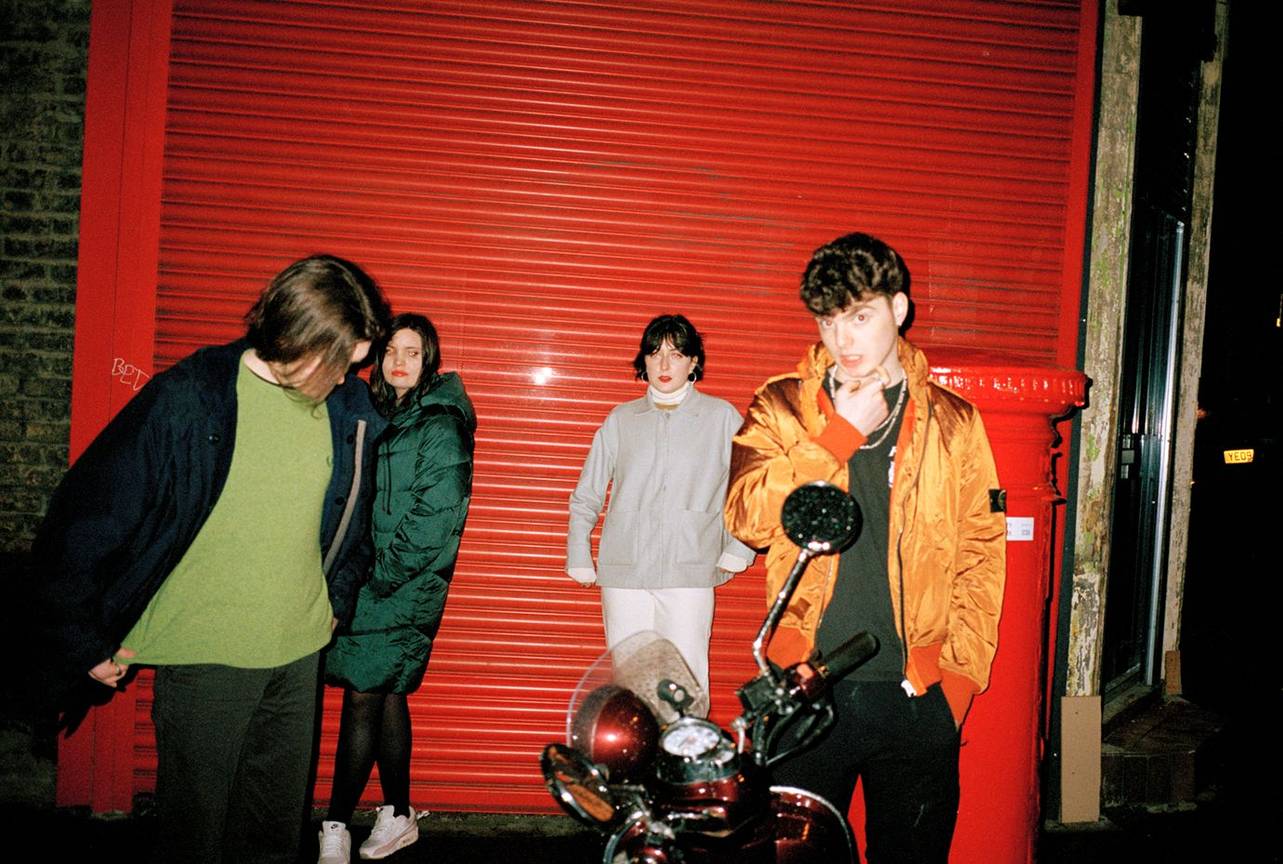They sound like a marriage between The Human League, New Order and The Fall. No wonder the British press is short of superlatives to describe the sound of Working Men's Club.

© Lillie Eiger
Not the next post-punk band in line: Working Men's Club
Sydney Minsky-Sargeant’s name has the allure of an old marshal with a battle named after him but in fact, he was only eighteen when he wrote Working Men’s Club’s debut album. Although as a listener you sporadically witness a musical battlefield, the potential of the front man – his friends just call him Syd – did not only appeal to our curiosity.
The British music press certainly did not spare its praise. It described the uncompromising way in which the four youngsters from West Yorkshire on their first self-titled album turned indie rock and dance into a sometimes semi-industrial but at the same time very melodic sound. The quartet has not strayed from that path on their recently released second album Fear Fear.
“I didn’t want to be the next post-punk band in line,” Minsky-Sergeant said right from the start, as determined as he was stubborn. “My project was supposed to be mostly weird , and I didn’t give a damn if people liked it or not.”
My project was supposed to be mostly weird , and I didn’t give a damn if people liked it or not
The proverbial kick in the backside came when their label Heavenly Recordings put the band in touch with producer Ross Orton, who had previously handled MIA and Arctic Monkeys. “He kicked the shit into us,” the frontman raved about the impact of the melomaniac from Sheffield on the sound of the group with its origins at BIMM Music School in Manchester in 2018. It was no longer just about Joy Division-like post-punk. The synthesizers and drum machines of new band members Mairead O’Connor and Rob Graham made the band make a big turn towards the dance floor. If The Human League, New Order and The Fall were to debut together now, they might also end up somewhere near WMC.
“It’s actually crazy that the whole music industry sits in London, because the best music is invariably made in the north of England,” NME boasted. “But maybe that’s just because they can lick each other’s arse there.” It is not the first time that small-town claustrophobia and hypocrisy has been sung about but Minsky-Sargeant is as proud of his Todmorden roots as he is happy to escape it.
“I hate the grey winters. But living in a small town has also helped me and the people around me. You can feel very isolated just in your own body.” The desolate synth sounds and anguished tenor of Fear Fear were enhanced by the lockdown during which they were created and match the guttural delivery of Minsky-Sargeant, who, despite his bleak visions of the future, manages to cheer up a growing fan base.
Lees meer over: Muziek , Working Men's Club